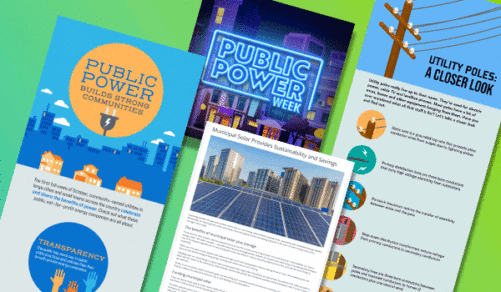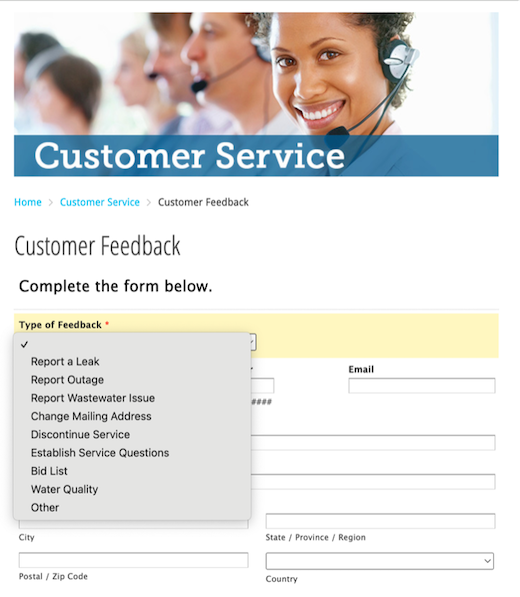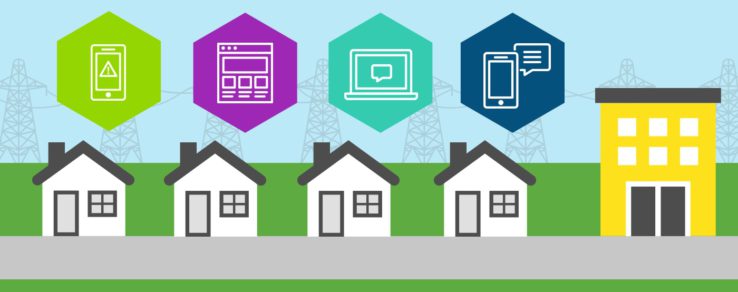Engaging with municipal utility customers requires a multifaceted strategic plan and a deep understanding of community needs. Municipal utilities play a critical role in providing essential services such as water, electricity, natural gas and sanitation to residential and business customers.
Establishing effective communication channels and engagement strategies is imperative for municipal utilities to address customer needs, promote conservation efforts and foster a sense of trust within the community.
Today’s rapidly changing landscape, marked by constant technology advancements and shifting consumer expectations, means that municipal utilities face unique challenges and opportunities when building relationships with their customers. The dynamics of engagement have evolved significantly, with social media and mobile apps becoming prominent channels for interaction.
Still, amidst these technological changes, traditional engagement methods remain invaluable to connect with customers. Balancing these approaches and incorporating best practices of municipal utilities ensures that your utility can effectively communicate, gather feedback and address the diverse needs of its customers.
From promoting energy efficiency and the benefits of conserving water to addressing billing inquiries, the way utilities interact with customers can significantly impact customer satisfaction levels and overall community well-being. By implementing municipal utility best practices for engaging with customers, utilities can build trust and stronger customer relationships.
Empower Customers Through Education and Outreach
One of the easiest ways to begin engaging with municipal customers is to start with education. Customers know what they know, and don’t know what they don’t. And when it comes to utilities, the topics of conversation aren’t always easy to understand. Customers may wonder:
- What is decarbonization?
- What does time-of-use billing mean and how does it affect me?
- Does turning off the lights or turning off the faucet really save me money?
Customers have a multitude of questions, and your municipal utility is the best, most trusted source to provide answers. You can educate customers on various platforms, including:
- Email newsletters: Consistent monthly touchpoints are one of the best ways to build engagement with customers throughout their energy journey. When you’re providing customers with helpful and engaging information, they start to look forward to these ongoing messages.
- Social media posts: It’s important to understand which social media platforms your customers use the most. Many times for utilities, especially municipal utilities, we find that Facebook is the platform with the highest customer engagement. Vary your types of posts from static images to videos to infographics and more, so that customers stay interested and entertained.
- Community events: One of the best aspects of a municipal utility is its ties to the community. Use this involvement to your utility’s advantage and plan fun, yet educational, events where the community can come to enjoy themselves and get some of their most common questions answered.
For example, Kerrville Public Utility Board (KPUB) uses Public Power Week to share information and engage with the community every year. Through their public power customer service, the utility hosts bucket truck rides for families, meet-and-greets with line workers, presentations on KPUB programs that can help customers save energy and money and tours of their community solar fields. By providing activities for customers to have fun and learn about their utility’s efforts, KPUB is reinforcing that it exists to serve its community members.
Education and outreach initiatives are powerful tools for empowering municipal utility customers and promoting beneficial programs and services. In addition to in-person events, municipal utilities can organize online workshops, webinars and informational sessions to educate customers on topics like energy conservation, water-saving techniques and other best practices of municipal utilities.
Additionally, providing online resources, such as energy calculators and eye-catching infographics about conservation, can empower customers to make informed decisions about their usage. These calculators and other interactive content pieces are great items to include in monthly newsletters. By investing in customer education, municipal utilities can continue to cultivate a culture of continuing education within the community.

How to Enhance Public Power Customer Service
In addition to promoting continuing education, municipal utilities should put a large focus of their public power customer service, especially transparent communication and accessible information.
Transparent communication channels and accessible information are essential for building trust and fostering positive relationships with customers. For example, your municipal utility should put an emphasis on ensuring the billing statements customers receive are clear and concise, with detailed explanations and graphics of charges and usage patterns. This will help customers to better understand their consumption habits and the associated costs.
For example, when PSEG Long Island introduced a balanced billing program, Questline Digital helped them create an educational video to educate customers about the changes to their monthly bills. The utility’s tutorial video helped customers understand how the set monthly payment was calculated.
Additionally, utilities should leverage the many available digital platforms to connect with customers. Specifically, offering mobile apps and online portals is essential. Customers can have real-time access to their My Account information, outage updates and other resources.
In fact, if you’re not already following this best practice for municipal utilities, your satisfaction scores might be taking a hit. According to the J.D. Power 2024 U.S. Utility Digital Experience Study, although utility mobile apps consistently have the highest level of customer satisfaction (60 points higher than mobile websites and 38 points higher than websites), 27% of utilities evaluated in the study do not currently offer one.
“Digital is the first stop for utility customers when they experience a problem or need more information related to billing or special programs, but more often than not, their digital inquiries are leading to dead ends and phone calls to customer service,” said Jon Sundberg, Director of Digital Solutions at J.D. Power, in a recent press release. “At a time when many industries are focused on developing consumer websites and apps that are updated in near real-time, the static, reactive approach to digital being taken by utilities is falling far short of current customer expectations.”
Enhancing your municipal utility’s digital footprint and focusing on accessibility and transparency will demonstrate your utility’s commitment to customer-centric services and solutions.
Receive and Implement Customer Feedback
A final best practice for municipal utilities when trying to engage with customers is simple: Ask them what they need. If you haven’t already noticed, customers are typically quite vocal when it comes to their utility services and they’re not afraid to share their opinions. While sometimes these can be negative, it’s up to your municipal utility to use them as a way to help your utility grow.
In fact, customer feedback is critical for improving utility services and addressing customer concerns in a timely manner. By establishing various feedback channels that customers can use to offer suggestions or opinions, your municipal utility is reinforcing its public power customer service role in working for the betterment of the community.
These feedback channels can include customer surveys, feedback forms after service, a dedicated customer service email, a submission field through My Account portals and more. The opportunities to receive feedback are endless. Just remember to promote these feedback channels and encourage customers to share their opinions.
Madison Utilities, based in Madison, Alabama, has a designated customer service feedback form hosted on their website. They provide options for the type of feedback, ranging from reporting a wastewater issue or water quality issue to providing a field where customers can specify their feedback.

After receiving input from these various channels, it’s important that your municipal utility takes them to heart and works effectively to implement change based on customers’ experiences and satisfaction levels.
Additionally, consider engaging with customers on your municipal utility’s social media platforms and community forums to address inquiries, provide updates and gather further insights into customer needs and preferences. Be where your customers are. This way, you can monitor customers’ wants and needs, then meet and exceed them. By prioritizing customer feedback, municipal utilities can build stronger relationships with customers and drive continuous improvement.
Proven Solutions to Boost Public Power Customer Service
Implementing best practices for municipal utility customer engagement is essential for fostering trust within the community and promoting relevant programs and services. By empowering customers through education and outreach, enhancing accessibility and transparency and implementing feedback opportunities, municipal utilities can build stronger customer relationships.
As municipal utilities navigate the challenges and opportunities of building customer engagement, embracing customer-centric strategies will be key to achieving long-term success.

